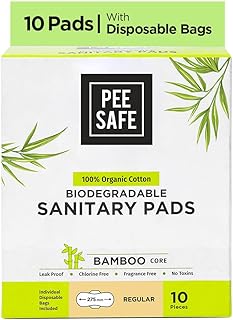In a remote corner of southern Nepal lies the Miteri Jaibik Pad Udhyog, a women-run factory pioneering a movement to introduce biodegradable menstrual pads as a sustainable and eco-friendly alternative. The factory, located in Chitwan district, has been producing both single-use biodegradable pads and reusable cloth pads since 2017, challenging the prevailing norms surrounding menstruation.
Known as Miteri, which translates to “chosen kinship” in Nepali, these pads not only provide women with healthier options but also aim to raise awareness about the environmental impact of non-biodegradable pads. The initiative seeks to promote “green menstruation,” advocating for a more sustainable approach to feminine hygiene while combating the stigma associated with periods.
Radha Paudel, a former nurse turned menstrual health advocate, co-founded the pad factory in collaboration with the Active Women’s Forum for Justice in Chitwan. Paudel’s personal experiences witnessing the use of unhygienic materials during menstruation inspired her to establish a social enterprise that prioritizes menstrual dignity, environmental sustainability, and affordability.
Inside the factory, equipped with a tin roof, a specialized machine churns out approximately 8,000 biodegradable pads daily. These pads are crafted from pinewood pulp sheets and cotton, packaged in bioplastic materials to ensure their complete biodegradability. This meticulous production process underscores the commitment to providing women with safe, eco-conscious menstrual products.
The Miteri eco-friendly pad factory represents a significant departure from conventional menstrual hygiene practices prevalent in Nepal and many other parts of the world. By offering biodegradable alternatives, the initiative challenges the notion that sustainable menstrual products are prohibitively expensive or unhygienic.
Moreover, the factory’s efforts align with a broader global trend towards eco-conscious consumer choices, reflecting a growing awareness of the environmental impact of everyday products. As consumers increasingly prioritize sustainability, the demand for biodegradable and eco-friendly alternatives, such as the Miteri pads, continues to rise.
Radha Paudel’s advocacy for dignified menstruation underscores the importance of addressing not only the practical aspects of menstrual hygiene but also the social and cultural taboos associated with periods. By promoting open discussions and education around menstruation, initiatives like the Miteri pad factory contribute to breaking down barriers and empowering women to make informed choices about their health and well-being.
As the global conversation around sustainable living and environmental conservation gains momentum, initiatives like the Miteri eco-friendly pad factory serve as inspiring examples of grassroots efforts to effect positive change. By combining social entrepreneurship with environmental consciousness, these initiatives offer a holistic approach to addressing pressing societal and environmental challenges.
📰 Related Articles
- How EXO’s Tao Revolutionizes Female Hygiene with DUOWEI Sanitary Pads
- Why Female Hygiene Matters: Impact of Menstrual Care Workshops
- Study Reveals Menstrual Hygiene Challenges Among Indian Women
- Study Reveals Factors Impacting Adolescent Menstrual Hygiene Practices
- Study Reveals Disparities in Menstrual Hygiene Practices in Nepal
📚Book Titles
- Sound of Seraphs: The Shocking Revolution of Christian Metal in Rock ‘n’ Roll’s Devil’s Domain
- Spillover Stories: Unraveling Zoonotic Diseases from Myth to Modern Pandemics
- Snowtown: One of Australias Worst Murder Cases
- Blueprint to Comprehensive Wellness: Strategize Your Nutrition, Fitness, and Mental Health






